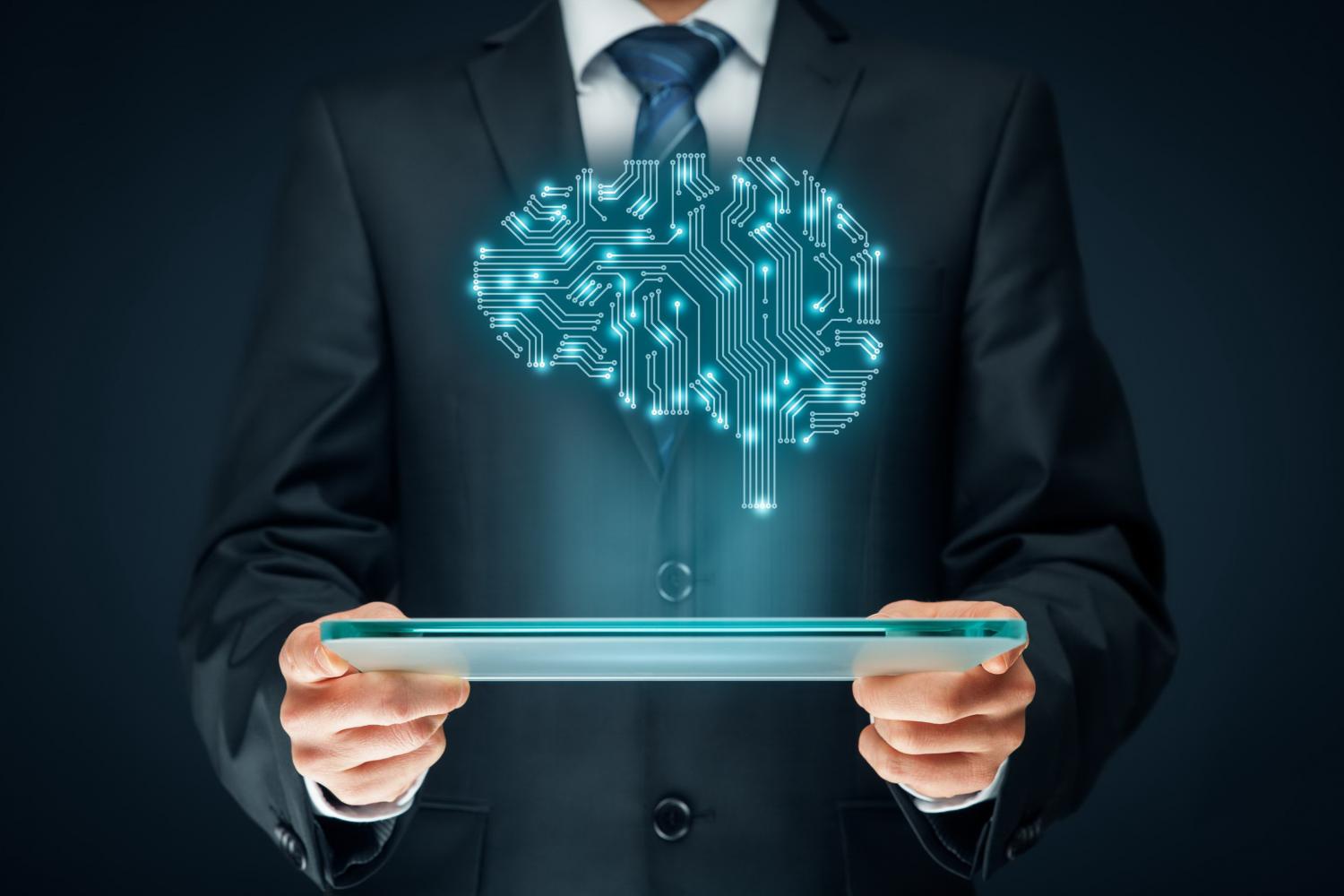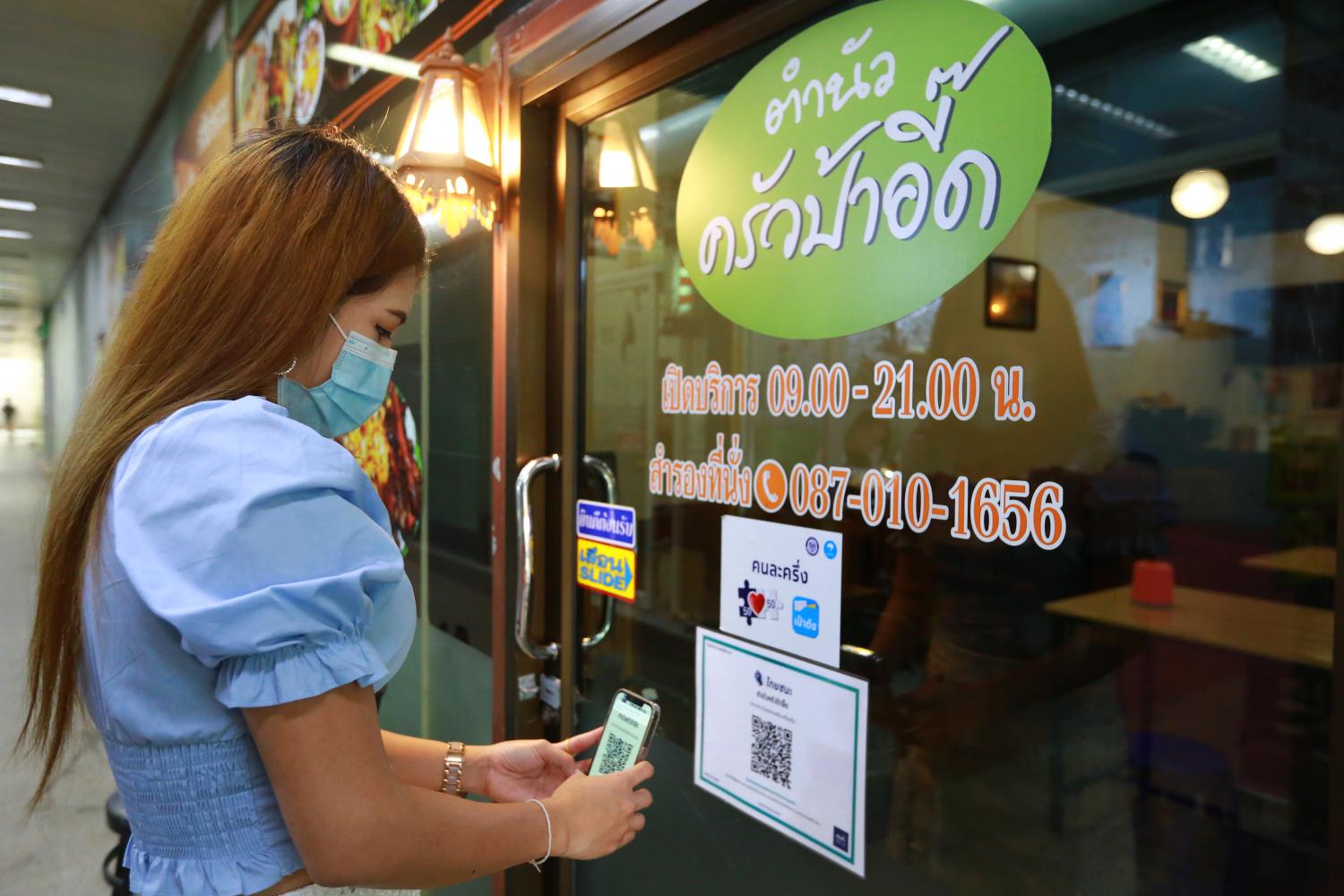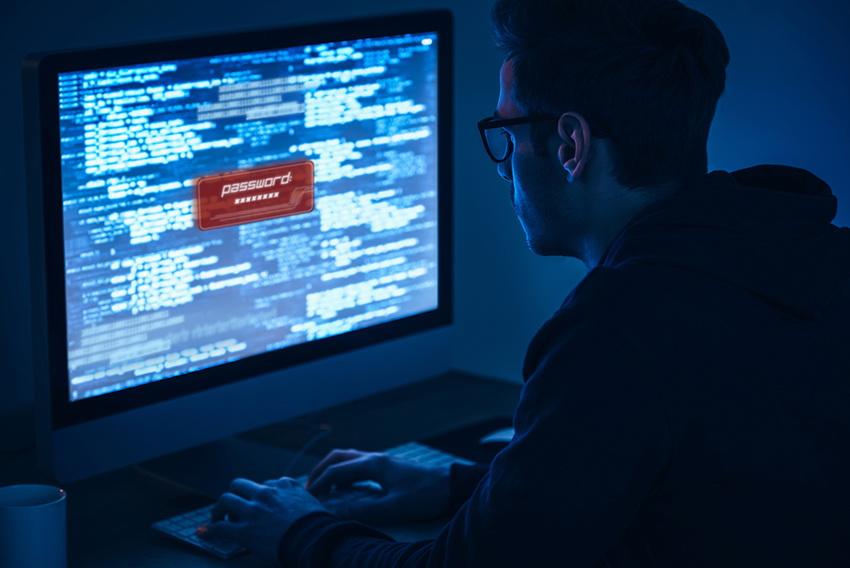
As the pandemic rages on, a slew of technologies ranging from cloud computing and Internet of Things (IoT) to digital health passes and telemedicine are being adopted to deal with the crisis and ensure continuity of business operations, making them likely to gain ground in the years to come.
Although the use of new technologies is ramping up, some people have concerns about the effective use of collected data, particularly by state agencies, which still lack cooperation on information sharing to combat the contagion.

A woman scans a QR code with the Thai Chana app. The platform has been criticised for its lack of data integration in tracking infected people. Somchai Poomlard
SLUGGISH INFORMATION SHARING
Manoo Ordeedolchest, an independent digital consultant, said Thais are capable of embracing technologies, are digitally literate and know how to use technologies for new opportunities.
"However, the major problem is the use of technology by the government sector. The government lacks cooperation and sometimes different departments even compete with each other to get recognised," he said.
"State agencies still have outdated regulations that neither keep pace with new technologies nor support data exchange among agencies. They lack a teamwork mindset."
The government ushered in some Covid-battling apps, namely Thai Chana, Mor Chana and Mor Prom, but they are hampered by a lack of collaboration among agencies, said Mr Manoo.
Dr Suthi Tuvirat, an independent scholar and medical doctor, said the government must ensure transparency and good governance by disclosing necessary data to citizens.
The government should use Covid-19 rapid test kits for active testing and showing necessary information about deployed vaccines and possible side effects, while informing the public how the virus can spread and how they can protect themselves, he said.
According to Dr Suthi, contact-tracing apps Mor Chana and Thai Chana hardly help track those at risk because of the lack of data integration among different agencies involved.
The systems must enable data sharing and allow different platforms to be connected, he said.
For example, when an emergency response call centre receives a phone call to pick up Covid-19 patients, the unit should be able to retrieve test results from the database directly by using the patients' identification numbers.
The patients' details and locations must also be directly drawn from the system to facilitate pick-up by an ambulance, said Dr Suthi.
State agencies need core digital infrastructure and high-performance computing to deal with a substantial amount of real-time data, he said.
Meanwhile, digital signature technology and blockchain would be useful for vaccine passports for travellers.
Vaccination records may need to be entered on citizens' smartcards rather than in a paper book, said Dr Suthi.
Sathapon Patanakuha, chief executive and founder of SmartContact Thailand Co, a health and fintech startup, said a string of technologies have been used to deal with the crisis, but most of them use a modular design without being connected or integrated.
This could lead to redundant work and inefficiency, he said.
"When the data obtained from each system cannot be linked, such systems and information cannot be applied for crisis management or to create policies that are practical and timely in a crisis," said Mr Sathapon.

Vaccine distribution and management could be facilitated by using digital technology. Varuth Hirunyatheb
HOT TECHNOLOGIES
He said vaccine passports, telemedicine, virtual hospitals and the formation of a national health information exchange are new health service features getting off the ground.
Regarding technologies for digital business infrastructure, Mr Sathapon said digital ID, self-sovereign identity, digital banking, officeless tech, online collaboration, decentralised autonomous organisations and software as a service are likely to be adopted in the post-pandemic period.
More investment is headed to deep tech along with frontier tech, such as blockchain, cybersecurity, artificial intelligence, brain-machine interface and clean energy, which should give Thailand an advantage, he said.
Phichet Rerkpreecha, chief executive of Line Thailand, said vaccination holds the key to the country's economic recovery.
"Distribution of vaccines will be challenging, but we need to work together as a nation to do this right," he said.
"Communication will also play an important role. Precise information in an organised and timely manner will be key to managing the public's expectations. Collaborations with the private sector will increase effectiveness of vaccine distributions and communications."

Cybersecurity is paramount during the pandemic when many people work from home.
DIGITAL HEALTH PASS
Global tech giant IBM believes a digital health pass is essential to allowing businesses to return to some level of normalcy and helping to control the spread of the virus.
IBM Digital Health Pass, built on IBM blockchain and cloud technology, is designed to enable organisations to verify health credentials of employees, customers and visitors entering their site based on criteria specified by the organisation, said Patama Chantaruck, vice-president for Indochina expansion and managing director of IBM Thailand.
Digital Health Pass must allow an individual to manage their information through an encrypted digital wallet on their smartphone and maintain control of what they share, with whom and for what purpose, she said.
As the world inches towards a return to normal, the use of health credentials, such as a report showing a recent Covid-19 testing or vaccination status, can play an important role as long as access to these credentials can scale and be secured in a transparent and private way, said Ms Patama.
Hybrid cloud, through cloud satellite technology, will play a major role in enabling innovation, security, data privacy and interoperability across IT and business environments, regardless of where data resides, she said.
Organisations need to automate to handle time-consuming business processes, reduce cost and drive efficiency, said Ms Patama.
In March, IBM worked with US pharmaceutical firm Moderna to support smart vaccine management with the goal of improved supply chain visibility and near real-time tracking of vaccine administration.
In Thailand, IBM joined the Thai Chamber of Commerce and major companies in an effort to bring its IT expertise to support vaccine management and distribution in Thailand, she said.

Digital signature and blockchain technology are needed for vaccine passports for travellers.
DIGITAL-FIRST MINDSET
Dhanawat Suthumpun, managing director of Microsoft Thailand, said the pandemic has led to accelerated digital adoption.
"In Thailand, the public sector needs greater agility to handle highly unpredictable situations, and this can be achieved with a digital-first mindset," he said.
Technology can be used to improve life during the pandemic in many ways, such as developing a holistic, end-to-end view of vaccine management, similar to supply chain management, said Mr Dhanawat.
"We can also reduce the need for physical contact by using an online collaboration platform for remote interactions between patients and health workers, while chatbots can relieve the human workload and increase efficiency of information sharing with the public," he said.
"Data has essentially become the new oil in our world, and this is the time to make the best use of it by sharing and integrating data from various sources."
Mr Dhanawat said the resurgence of Covid-19 has brought back widespread remote work policies, and digital productivity continues to gain importance for business continuity.
Cybersecurity will continue to be a major issue in this setting as people, data and devices are quickly and widely decentralised to keep businesses moving, he said.
IoT-BASED VACCINE DISTRIBUTION
Seth Ryding, chief of sales for Telenor Connexion, a specialised IoT firm under Norwegian telecommunications giant Telenor Group, said Telenor is working with vaccine producers in Europe and North America to use IoT solutions to expedite vaccine distribution.
The technology has not been brought to Thailand yet, he said.
The Thai government has been criticised for its slow vaccination rollout, which was blamed for a spike in infections over the past month.
Mr Ryding said the Covid-19 vaccine is very sensitive and requires a cold temperature.
"You need to ensure the vaccine is not exposed, and you need to be able to prove that at the end of the delivery," he said.
"You also want to ensure its temperature during delivery so you can make changes to your vaccination plan in cases where you know the vaccine was damaged during transport."